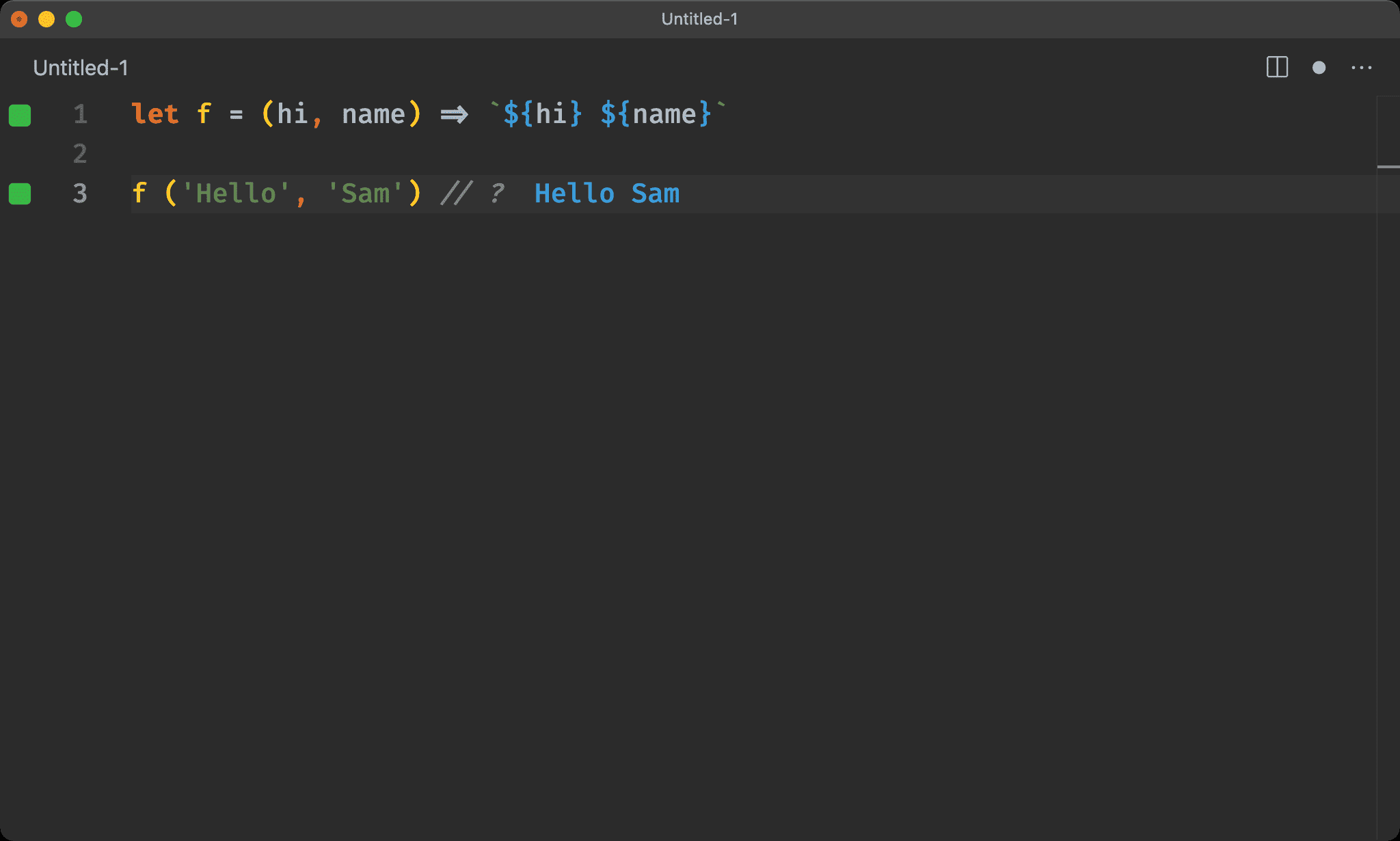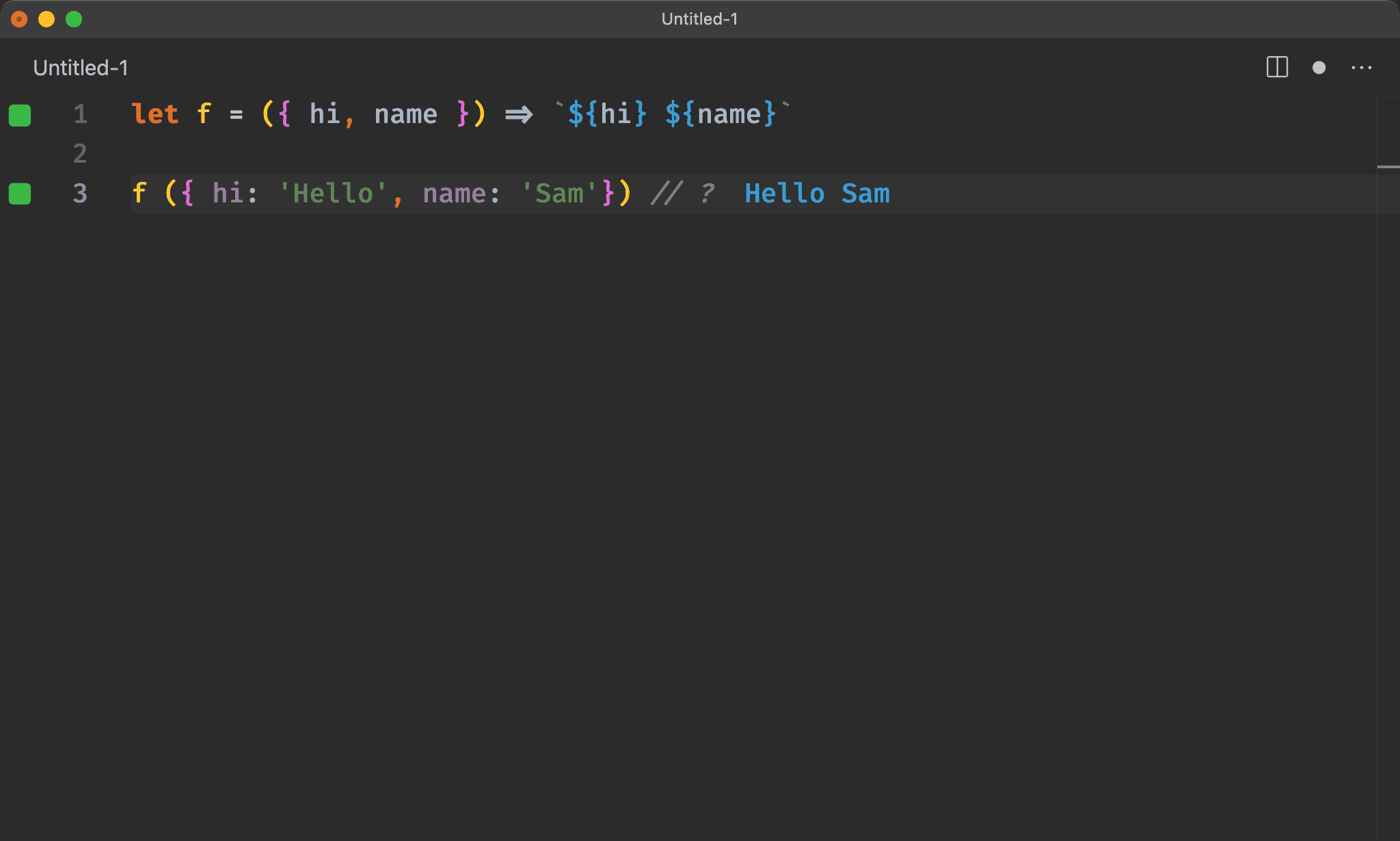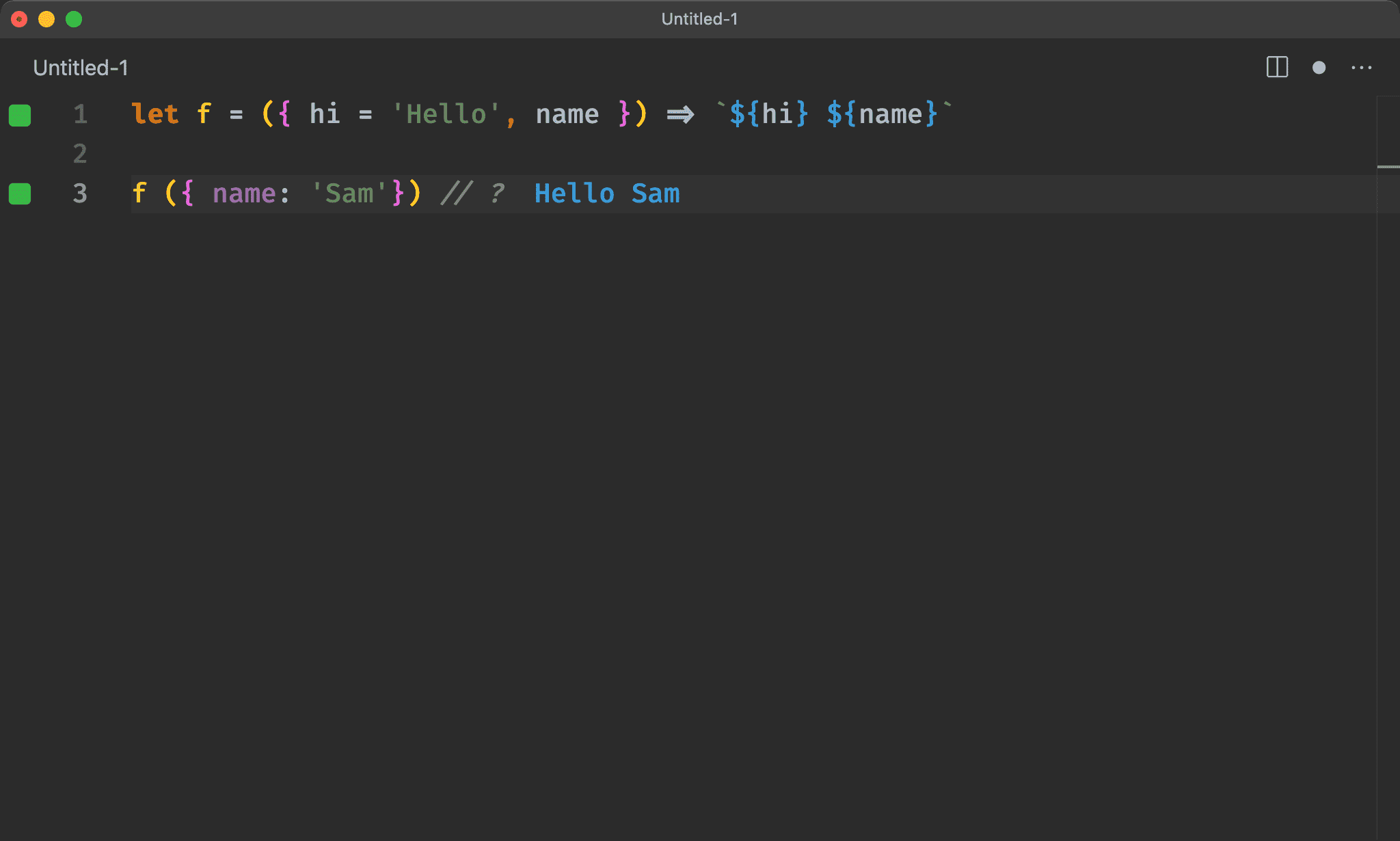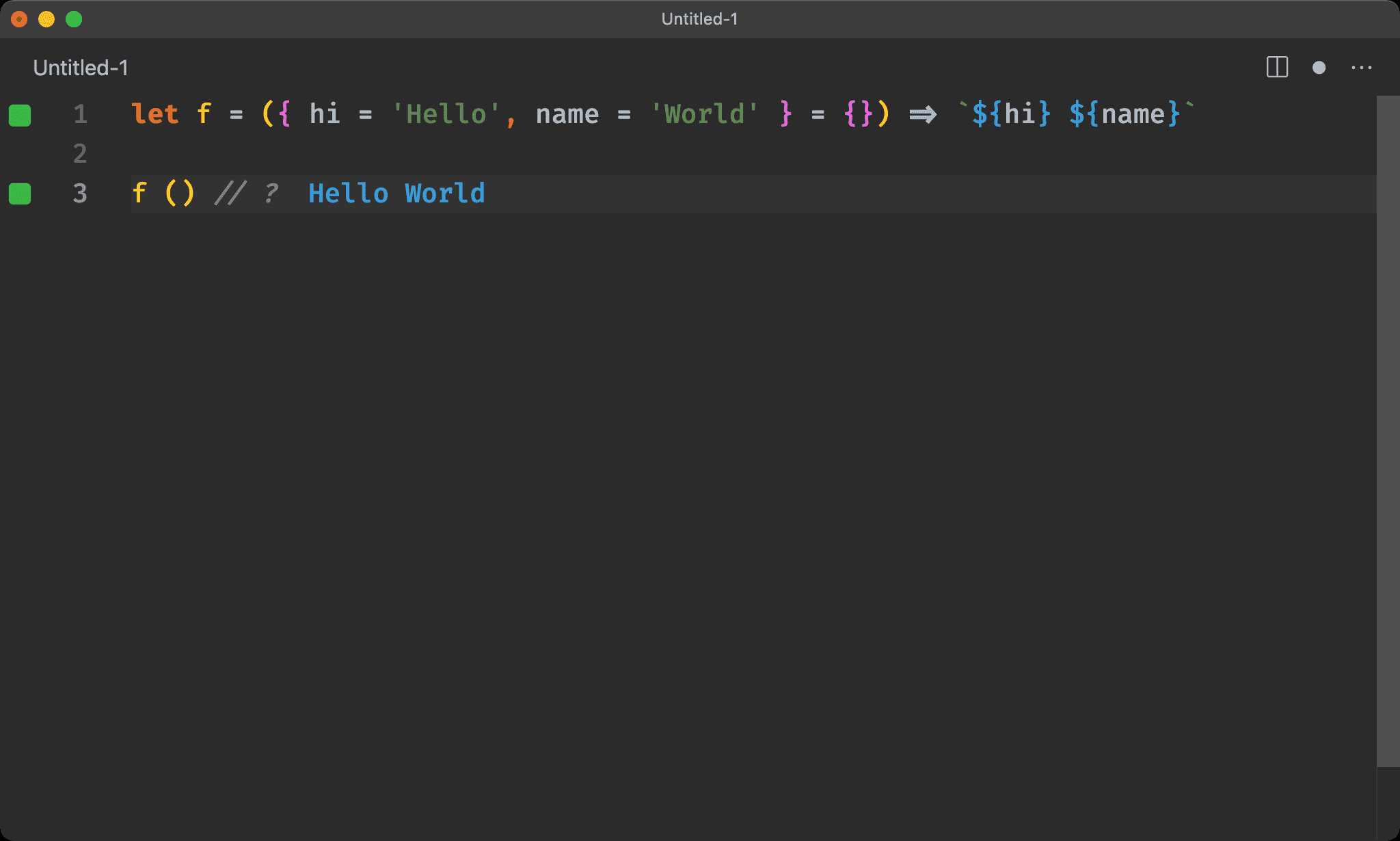Object Destructuring was introduced by ECMAScript 2015. Using it with function argument, we can implement Pass By Name feature in ECMAScript.
Version
ECMAScript 2015
Pass by Value
let f = (hi, name) => `${hi} ${name}`
f ('Hello', 'Sam') // ?
- Before ES2015, if the function has multiple arguments, we have to pass them by value with the correct sequence
- For readability concerned, we don’t know the meaning of each argument we pass

Pass by Name
let f = ({ hi, name }) => `${hi} ${name}`
f ({ hi: 'Hello', name: 'Sam'}) // ?
- With Object Destructuring provided by ES6, we can replace multiple arguments with one Object and directly destructure them on the argument
- When calling function, we have to provide an Object with key and value, and this improves the readability of each argument we pass

Default Value
let f = ({ hi = 'Hello', name }) => `${hi} ${name}`
f ({ name: 'Sam'}) // ?
We can provide the argument’s default value, so users may not have to provide Object with those keys.

Optional Argument
let f = ({ hi = 'Hello', name = 'World' } = {}) => `${hi} ${name}`
f () // ?
If all arguments are optional, we have to do the following steps :
- Make each argument with a default value
- Make the whole object with default empty Object

Conclusion
- Since ECMAScript is a multi-paradigm language, there are many coding styles in ECMAScript.
- For arguments of a function, we may have many styles :
- A function with multiple arguments
- A function with only one object as an argument, destructuring to multiple arguments
- Acurried function to implement multiple arguments